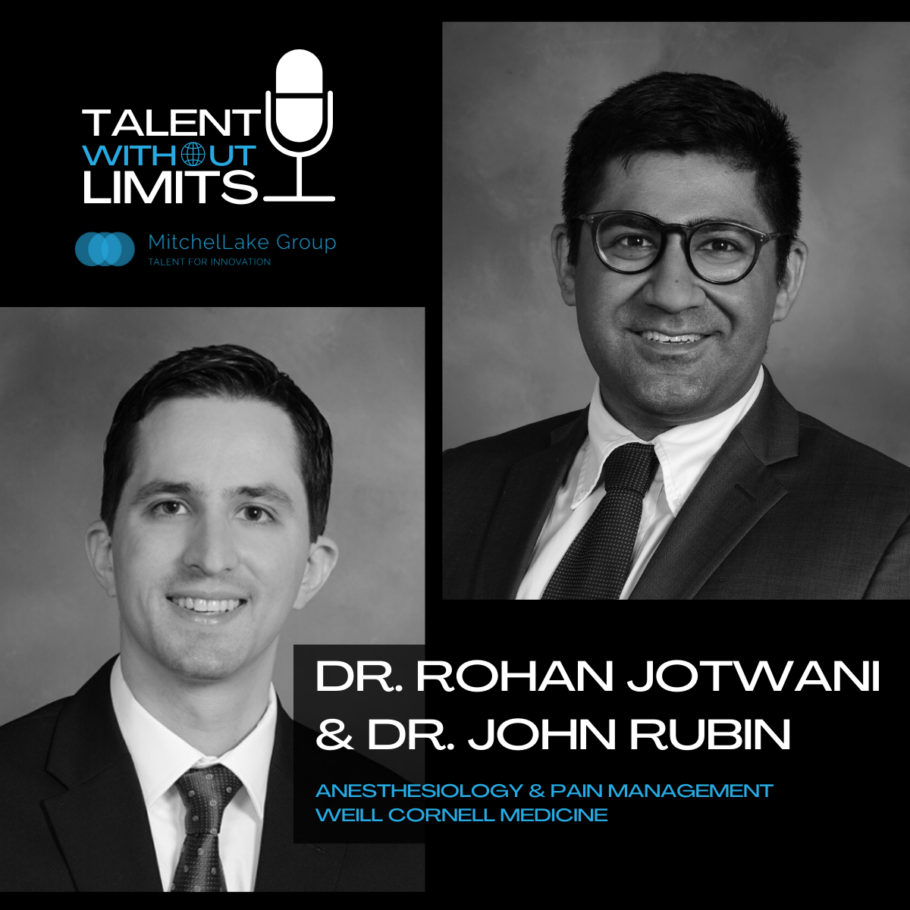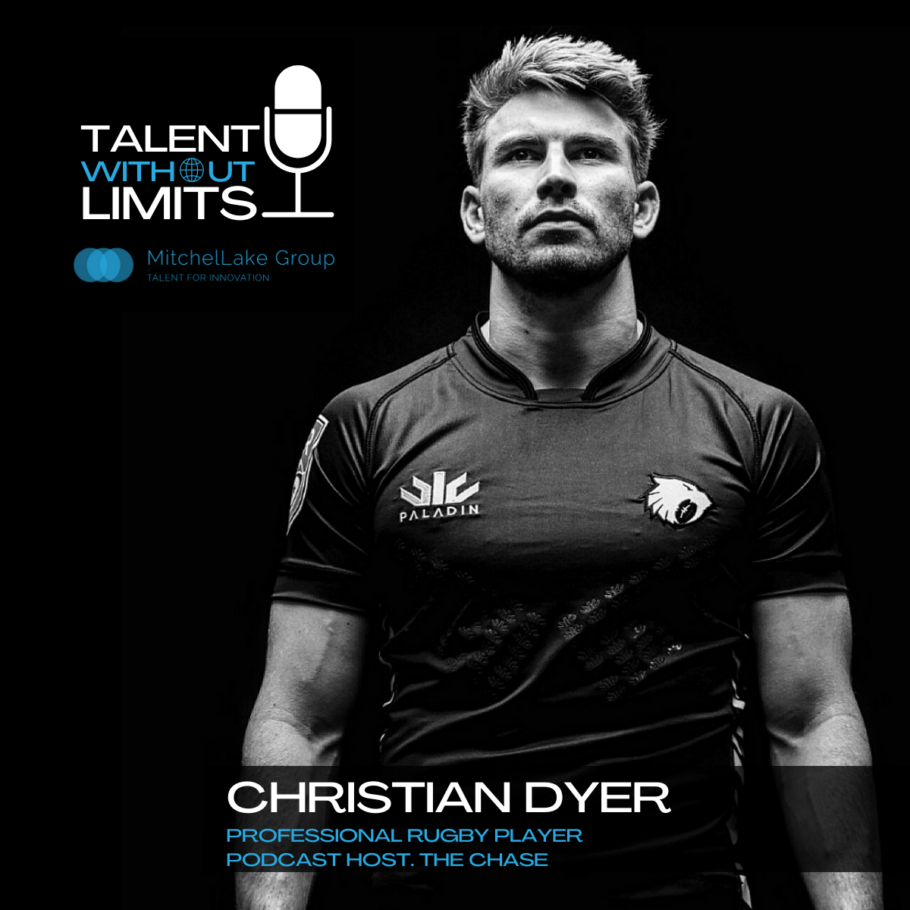PODCAST Talent Without Limits: Agent of Change, NFL Super Agent, Leigh Steinberg Posted at 16:18, Sat, 4 February 2023 in Profiles
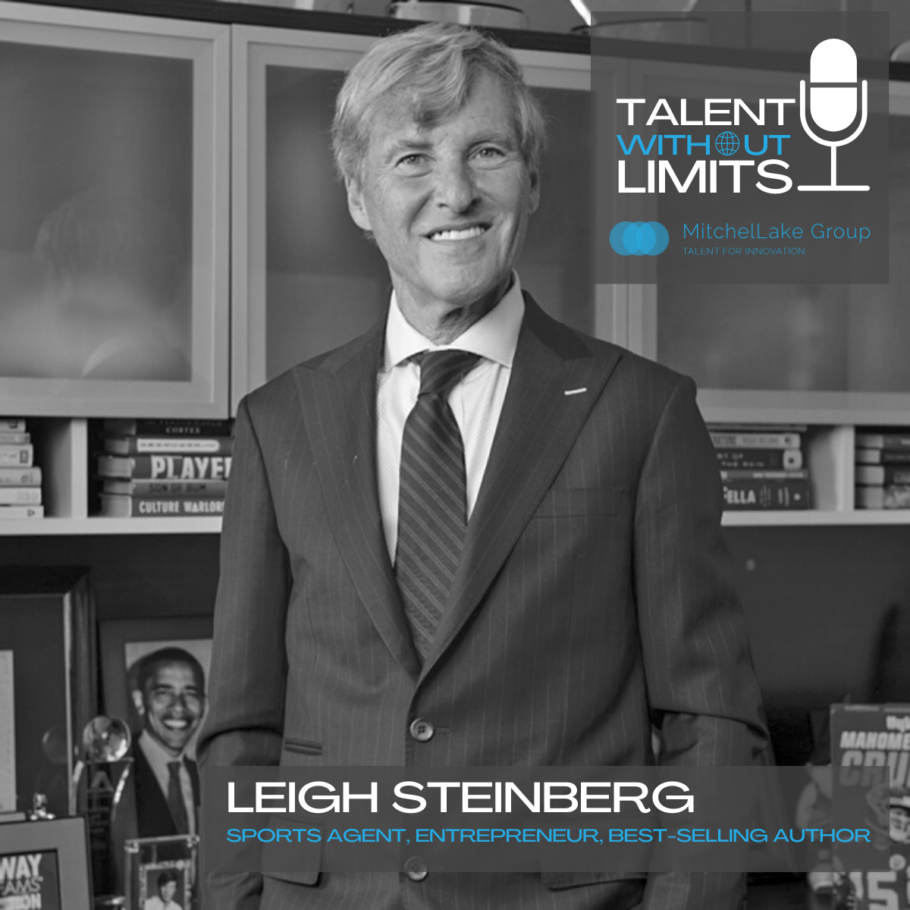
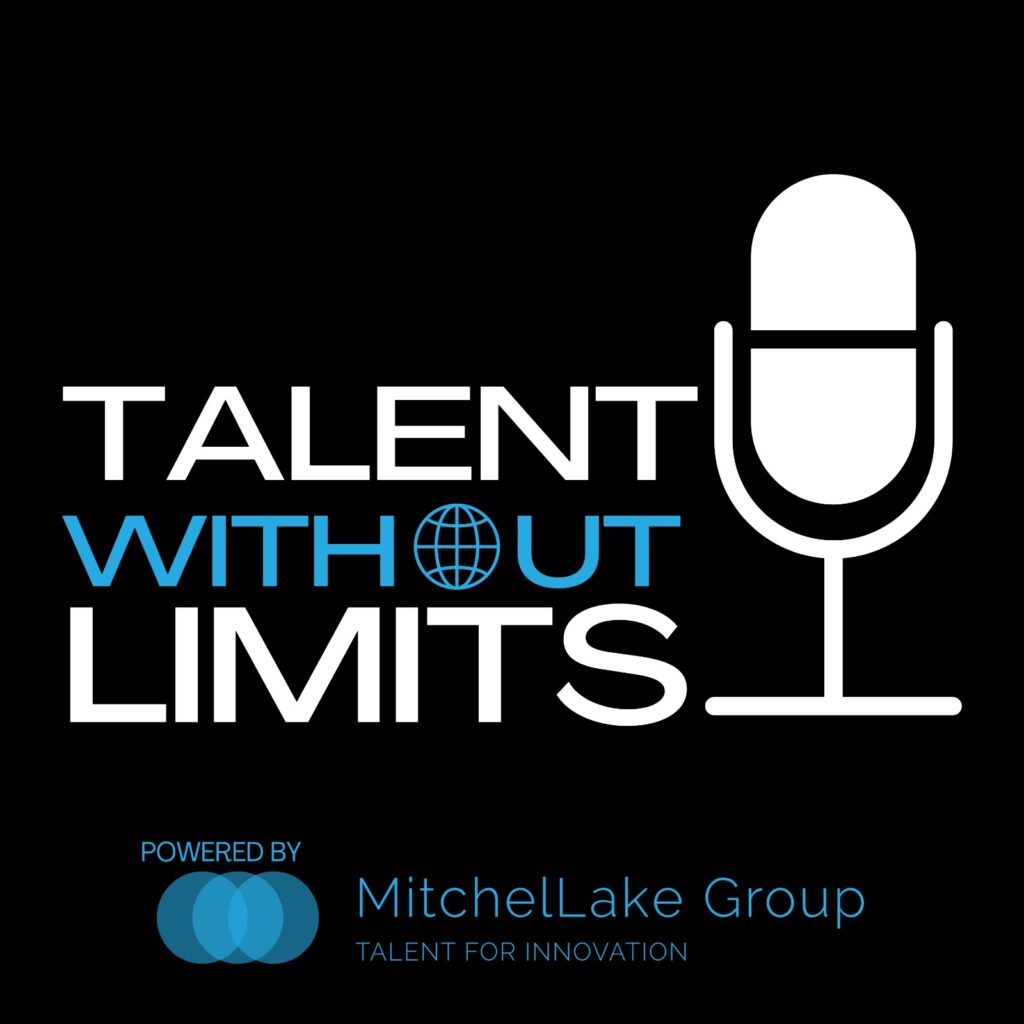
For over 20 years we at MitchelLake have worked with game changers, innovators and leaders who have been on extraordinary journeys from diverse and sometimes challenging backgrounds. These are their thoughtful and honest stories that focus on ignoring convention to create their own pathways and achieving their dreams and goals. Join hosts managing partner Jon Tanner, partner Michael Datta and advisor Patrick Blute, as we explore Talent Without Limits.
Michael Datta: Our guest today is a true living legend of the sports industry. Based in the United States, Leigh Steinberg is a premier sports agent, entrepreneur, and Best Selling Author. Leigh has represented many of the most successful athletes and coaches in football, basketball, baseball, hockey, boxing and golf including the number one overall pick in the NFL draft for an unprecedented eight times in conjunction with 64 Total First Round picks. With an unrivaled history of record setting contracts, Lee has scored over $4 billion for his 300 Plus pro-athlete clients and directed more than $1 billion to various charities around the world. He has been featured in numerous national television programs, including 60 Minutes, Larry King Live, the Today Show and many more. He’s been profiled in a host of magazines, including BusinessWeek, Sports Illustrated, People, Forbes, and again so much more. But the one that resonated with me the most, which I truly loved is Hollywood came knocking. And so this is where Lee is often credited as a real life inspiration for the Oscar-winning film, Jerry Maguire. I’d like to introduce you now to Leigh. Thank you mate. I know with your busy schedule with the ramp up towards your major event that Super Bowl
Time is very precious and with everything else you’ve got going on, I also want to send out a shout out and thank you to Dr. Jen Welter for introducing us, you know, a couple of months back where I came to visit you at your office there in Newport. And so thank you Jen. And I also want to introduce you to my wonderful colleague Patrick Blute and co-host who is actually based in New York. So we’re very international today. We got Patrick in New York. You’re in Newport Beach, California. I’m here on the Sunshine Coast in Queensland, Australia.
Leigh Steinberg: Yeah, covering all the time. So yeah, we’re like the United Nations.
Michael Datta: Patrick, let’s lead through this I think you know, Leigh with such an incredible background and history. Would you like to start with perhaps just an intro of your background?
Leigh Steinberg: So I grew up in Los Angeles, went to UCLA for a year and then up to Cal Berkeley in the tumultuous 60s. And I was assumed by the President and the governor of California was Ronald Reagan. And every time we demonstrated against the Vietnam War, he cracked down so I learned everything I needed to learn about the art of negotiating from dealing with Governor, later President Reagan. I went to law school and I was a dorm counselor in an undergrad dormitory, and they moved the freshman football team and gone and one of the students was the quarterback Steve Murkowski. And when I graduated from law school, I traveled the world for a year and when I got back Murkowski had been selected as the first pick overall in the NFL draft in 1975. And asked me to represent them without not having practice yet. And yeah, there was a world only competing against the NFL so we were lucky to get the largest rookie contract in NFL history. Wow. And I was looking for a profession that would be sustainable with my dad’s two core values, which were one treasure relationships, especially family, and to make a meaningful difference in the world to help people couldn’t help themselves. And I saw that the athletes could be role models, and their high profile gave them the ability to retrace their routes to the high school level. were set up a scholarship fund or work with a church for Boys and Girls Club, at the collegiate level where they could do a scholarship or bond with the alums that would be great mentors, and it’s a pro level find some pause. Incredibly important to them, and set up a charitable foundation that had as an advisory board to leading business figures, political figures and community leaders to work on a project so it’s worked on putting 200 single mothers into their first homes. The core messaging like heavyweight boxer and work with Lennox Lewis saying Real men don’t Hit Women.
And so that was 40 years ago in football, represented 64 first round draft picks. A very first player in the first round eight years. We have pro players in the pro Hall of Fame and then baseball, ton of great players basketball, Olympic sports, and wrote a couple of books along the way, on the way to writing a third and so here we are.
Patrick Blute: I love that you brought up the power of legacy and really thinking about leadership and role models and you obviously have one of the most impressive and compelling and long lasting events leading up to the Super Bowl. So we’d love to just hear from you what your experience has been and how this event has evolved through your career.
Leigh Steinberg: It was started back in 1985. And it was at my house in Berkeley. And what I wanted to do was create an environment that was different than a noisy, boozy, dark, overcrowded parties and have a daytime party and the culture of whatever that place was to pick iconic places. So last year, we had it at Sony Studios, 20th Century Fox in Los Angeles, and Phoenix at the botanical gardens. So it’s a coalition of big business, big, bold and big, big sports and big entertainment. And we do humanitarian awards for our owners, or managers and coaches and players, our players. We do a brain body plan.
All the cutting edge techniques that can heal brain plasticity. We are less done a concussion conference from last 17 times where we have leading neurologists and experts in terms of prevention awareness.
We do a big charity so this year will feed the homeless in Arizona and then we have fun things happen one yea we had the exercise instructor Richard Simmons played by Rob Schneider were coming to the party and he got drunk and ate ding dongs and they showed it on Jay Leno that night to the real reason.
So we showcase interesting new products and the rest of it so it’s a daytime party where you can go into a virtual reality exhibit or see animals for you can do all sorts of fun things. And while we’re making a difference. One year they were having a problem with drinking water in Haiti because of the earthquake, we set a water machine down that purify the water for 140,000 people a day so prior to be place sensitive. We have live hook up troops in the field when we’re in Iraq and Afghanistan. At first responders back in 2001. We tried to make sure that we’re sensitive to the environment away from sports while we’re doing the party that’s fantastic.
Michael Datta: And you know Pat, we should let you know that you know our partner Neuroflex will be actually exhibiting at the event excellent showing off their VR concussion testing goggles with software. And so it’s a very exciting time for them to be a part of and this is a big thing that really resonated with me in regards to what Leigh’s doing around overall duty of care and well being of athletes. It’s way beyond leaving an agent or a manager as such, beyond being also him being a mentor and all the rest of that he does for his athletes. But this is so important.
Leigh Steinberg: I have a precious conscience back in a way these players are going out on the field and being hidden ahead and when we would go to doctors and ask how many is too many. What’s the magic number? There were no answers. So when we started trying to get eventually got to the point we’re on exponential exponentially higher rate of Alzheimer’s, Parkinson’s, premature senility, CTE and depression so you know, we’re thrilled to have a better diagnostic technique because we’re always looking for breakthroughs that will help us get a handle. I didn’t go to law school to send players down the room to brain damage. So the least we can do is to be proactive in a fiduciary sense with trying to help them solve this problem.
Patrick Blute: And that that just is so pertinent to really how the industry has changed through your vision and leadership on this topic, so just curious as you’re thinking about future performance enhancement and the different technologies that you’re seeing what’s inspiring you from seeing this transition to now and what’s coming up ahead.
Leigh Steinberg: Oh, I think there are a couple basic situations in sport that can be impacted. One is the fact that every game had changed now 30% Are blowouts for every game in professional sports comes down to the last quarter or the last drive. So is there are there processes that can enhance productivity, energy, focus in those critical moments, and that could be hyperbaric oxygen, white stem. There are all sorts of techniques. The second is eSports now have salary caps. And that means that if a team is playing football or paying the left tackle $25 million a year is backups going to be somewhat considerably diminished.
And so when you lose that critical player having a backer game or two or three quicker and make a dynamic impact on the ability to make the playoffs Super Bowl the World Series, the NBA championship, so can we do something to stimulate that? So of the techniques we talked about nerves, circulation receives answers circulation, they’re energy machines that stimulate energy, they’re all third to new technologies and then at the end of the day, can we help people in the general public have better cognitive function long enhance memory, we enhance neural processing and this whole centers around the concept of neuro-plasticity. That means your brain doesn’t necessarily have to degrade all the time and get worse and worse. It actually can be repaired and get better and this is new, exciting breakthroughs that are happening.
Patrick Blute: Yeah, that’s fantastic.
Michael Datta: Yeah, so, you know, in itself, Pat, in itself, that’s where Leigh is a role model. You know, across sport, you know, not just say in football, but across all sport and then that flows into community. And the event that you actually put on the is there to support community, which is fantastic, which is exactly what it’s about. So we thank you for that.
Leigh Steinberg: It’s my pleasure. You know, I had a father who said, when there’s a problem in the world, as small as a piece of paper, it’s trash in front of you and as big as racism or climate change. And the tendency is to wait until the they are them the amorphous they are them solve the problem, or the people political figures. My dad used to look at me say you could wait forever for or solve it. He so I think all of us have a responsibility in our own time in our own way to try to see how we can enhance our existence on this planet and and heal pain where exists.
Patrick Blute: It’s such a great philosophy to really carry with you because the lived experience of your journey in this industry and your influence on it allows other days to face different types of problems too. So that’s a wonderful mindset to bring to the field and really this this idea of role modeling, how we can provide that inspiration for others. I think that is a really core pillar of what you’ve brought to the people you’ve been able to mentor in your career.
Leigh Steinberg: Thank you, Patrick. What we have the athletes modeling is not an athletic behavior because very tiny percentage of people could never be professional athletes. It’s your responsibility. We all have people who raise children well. Good parenting is a positive contribution to the world if you’ve just stopped that that it would make a major difference so that people shouldn’t be discouraged or scared to think that their vision can be played out in the world. It’s as simple as just doing it. Yeah. One of the you know, I follow everyone listening, you should definitely follow Lee across all the social platforms. And it was one this morning early my time I got to see where you know, you talked about how to get the most out of people, how to help people how to guide people as well just listen.
Michael Datta: You’ve become that role model because you’re actually then targeting what your what that person is really requiring based on them as an individual. And it was very powerful. And I just think, you know, part of your core values is how you listen in such a simple way right?
Leigh Steinberg: And people think that how you speak and suasion equation is the critical key but really, it’s not. If you can draw out another human being and cut below the surface and understand their values. In other words, how do you feel about short term economic gain, long term economic security, spiritual values, geographical location, whether lifestyle family considerations, making a difference in the world autonomy.
It could be in the corner office or vacation but making a difference in the world if you can get people to feel enough trust and safety to peel back the layers of the onion and reveal who they really are. You can understand someone else’s deepest sing xiety and fears and their greatest hopes and dreams and put yourself in another person’s heart and see the world the way they see. Then you can navigate your way through life productively and graciousness.
Patrick Blute: That makes so much sense. That’s that’s akin to that philosophy to not projecting that there’s a day or otherness but really what do we have in common and what do we share and that’s really where we find growth.
Michael Datta: Absolutely. Now, Lee, I wasn’t going to bring this up, but I’ve got to ask you because our listeners can’t see this. You know that. That famous picture behind you in your chair. You and Tom Cruise and Cuba Gooding Jr. Tell it tell us about that picture. And how that came about.
Leigh Steinberg:
Sure was 1993 and a writer director named Cameron Crowe called me and asked if he could follow me around to pick up atmosphere and in detail for a film that would be based on a sports agent and he had gone underground in a southern California high school and written a book called Fast Times at Ridgemont High. That was very funny.
So, so I was open to it. And he went to the draft in 1993 where I had to first pick Drew Bledsoe he went to those league meetings where I was showing off free agents and he was applying on the wall and listened to discussions. He went to pro scouting day at University of Southern California he went to a number of games with me to my Super Bowl party too.
And I told him stories, lots and lots of stories. And then you went off and wrote a brilliant script. And my job is technical adviser was to vet the script to make sure the willing suspension of disbelief that will hold you in a motion picture didn’t get shattered. You didn’t think the look was phony or the dialogue was phony. And then he gave me some of the actors like Cuba Gooding Jr. and I took him down to a Super Bowl in Phoenix. I made him pretend he was a wide receiver client for a whole week and testing role and actually had to show the quarterback in the film played by Jerry O’Connell how to throw a spiral gun to NYU and they didn’t have a football program there. Or it’s been 25 years and rarely do I go out in public to an airport or restaurant where some of them run up and either asked me to say or say to me for word.
Michael Datta: And, obviously, Jerry Maguire came out, and it had nothing to do with show me the money. You know, it really didn’t. I mean, that’s an end result of doing all the work that was done to get to that end where the, you know, the financial outcomes came through. But there was one other key part of that movie that has still resonates with me today. Is that helped me help you lie. Right? That’s the guilt game. That’s that’s the role model. That’s the list. That’s to help me help. That is the one line still to this day. I still kind of I think I actually base a lot of my work principles for that, you know. The essence of that, once again, is to be able to put yourself in another person’s heart and mind and I’m sure the female listeners to this broadcast will agree with this statement that men don’t tend to share their emotional feelings quite as easily as women. Do. So you have to do more work to elicit a deeper response.
Michael Datta: And it really is all about drawing out another human being.
Patrick Blute: Something that is really prevalent is this concept right now around change and transformation, as people are thinking about what they have experienced over the last few years going forward through careers and journeys. I would love to know from from your rich experience, what advice do you have around the concept of going limitless going to you’re above and beyond peak performance space?
Leigh Steinberg: So I think the key for any young person is to learn how to distinguish themselves in a hyper competitive world. First of all, you need to be aware of trends and say show I’ve read six newspapers a day, a ton of magazines, watch a lot of television and talk to a lot of people to try to understand where things are going to see the fundamental shift, which is how information is circular, right? So I’m growing up and we read newspapers and watch network television. But now we have multiple platforms and contents.
And that’s how information is shared in the currency. In this society becomes how many followers that you have on TikTok or LinkedIn or Instagram or Facebook, or Twitter. And so it’s different and to be aware of the fact that if you grow up today, in a world of big screen computers in color and sound, it can have a subversive effect if you’re multitasking constantly on patients and focus and you have to somehow be willing to get into this moment because this moment I’m sharing with you is not about what’s happening in the future or the past. It’s not about my cell phone or what someone might be texting me it’s putting every bit of energy and focus into this moment as distinguished from every other moment, to get the most out of it. And it’s being able to focus and and be able to listen to text and subtext and the rest of it is more difficult in a world of constant interactivity to be able to have that awareness of what is in front of you and being able to focus and get the most out of that moment.
Patrick Blute: That’s excellent, excellent guidance. And it’s, it goes back to your philosophy really being able to embody and be present to others.
Leigh Steinberg: Right. It’s, it’s, we will have a tendency to think well you know, my real life was in the past. These friends this geographical location, or my real life will be in the future when this happens. This happens things saying no, your life is right now, and the only inexorable evanescent concept we have is time and time goes away. So the thought that you’d be deferring being present to the past or the future is nonsensical. This is the moment and this is the time and be as focused and productive and thoughtful in this moment as you can.
Michael Datta: Well, I think, you know, Pat, that is for me. One, absolutely. Fantastic, inspiring discussion. And I have to tell you, Leigh, I’m very excited to come and see you in Phoenix in February. And I can’t wait to be a part of that event. I know Neuroflex and the team there are very excited and, you know, again, just to be able to see how you’re putting all this together once again for the community. Right? Right.
Leigh Steinberg: Look, we’re privileged that people like you will come with a product that could make a essential shift and how we evaluate concussions, how quickly that happens, and a much better approach than how many fingers from my holding hands. Exactly. You know, and it’ll be great to be there to collaborate with, you know, founders and creators of these other amazing products that are out there to help you know, these athletes and the community right. So this is it’s gonna be very exciting.
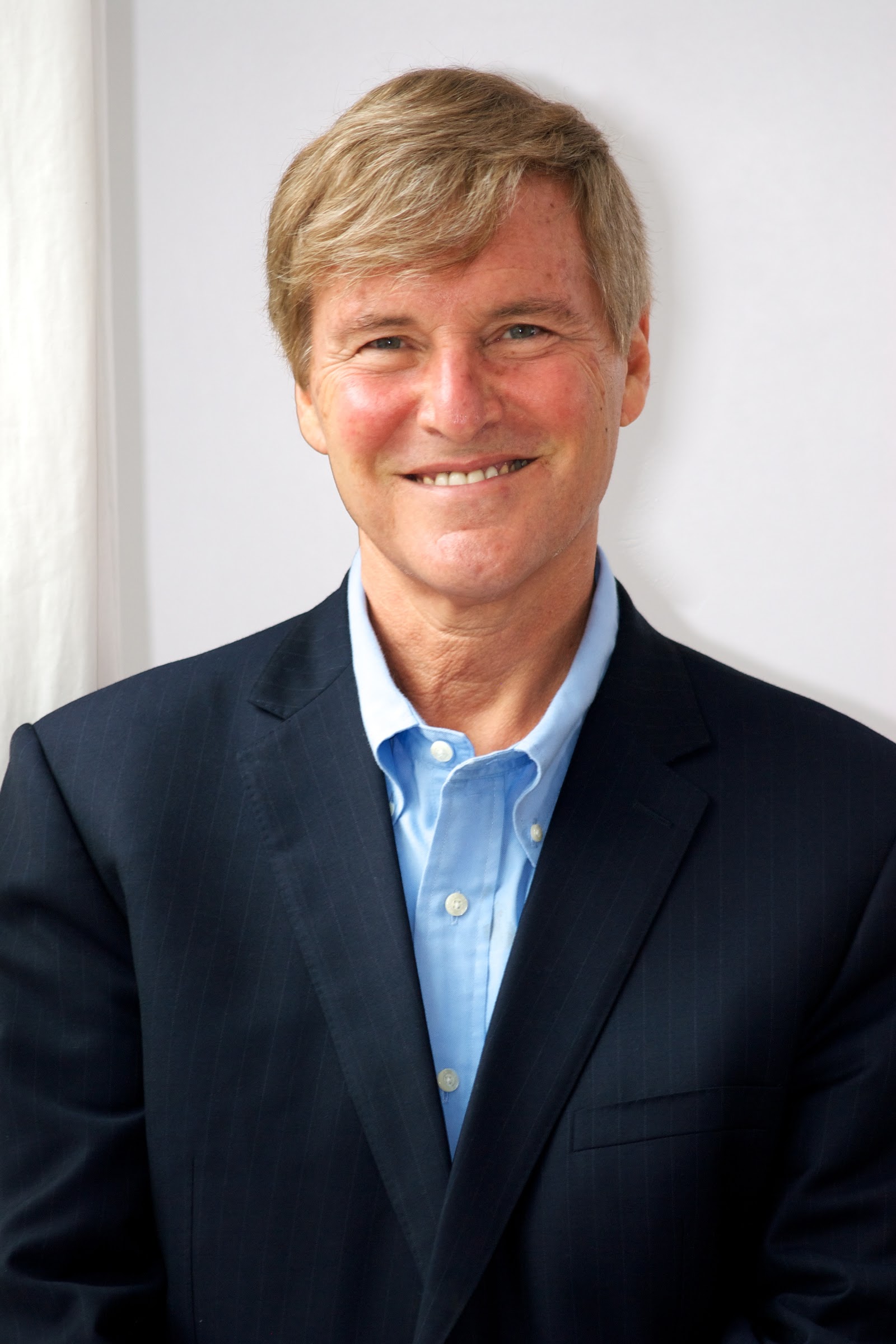
Leigh Steinberg
Premier Sports Agent, Entrepreneur, best-selling author, and Chairman of Leigh Steinberg Sports and Entertainment Holdings
Leigh Steinberg, premier sports agent, entrepreneur, best-selling author, and Chairman of Leigh Steinberg Sports and Entertainment Holdings, is best known for his work building athletes into stand-alone brands. He is often credited as the real-life inspiration for the Oscar-winning film Jerry Maguire. Leigh has represented many of the most successful athletes and coaches in football, basketball, baseball, hockey, boxing, and golf, including the number one overall pick in the NFL draft for an unprecedented eight times in conjunction with 64 total first round picks. With an unrivaled history of record-setting contracts, Leigh has secured over $4 billion for his 300+ pro athlete clients and directed more than $1 billion to various charities around the world.
Over the course of his career, Leigh has been featured on numerous national television programs, including 60 Minutes, Larry King Live, The Today Show, Lifestyles of the Rich and Famous, and many more. He has been profiled in a host of magazines, including Business Week, Sports Illustrated, ESPN the Magazine, People, Forbes, Playboy, GQ, and FHM. He currently resides in Newport Beach, CA.
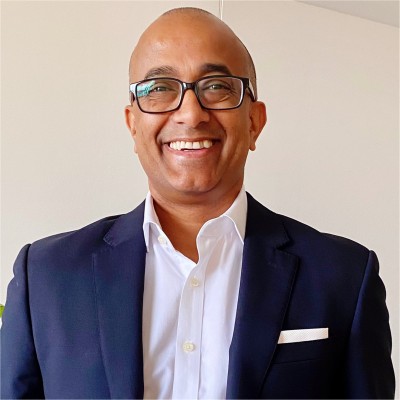
Michael Datta
Talent Without Limits Co-Host, MitchelLake Growth Partner
Globally experienced entrepreneur, investor, and advisor. Expert in international trade and ventures. Oracle of coffee, wine, sports, and talent insights.
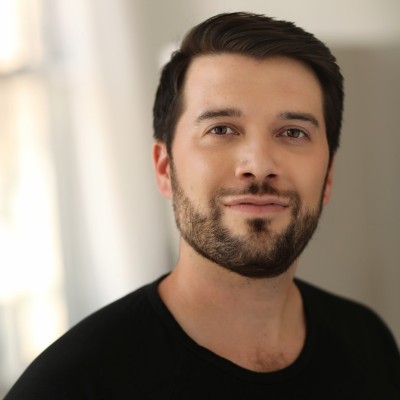
Patrick Blute
Talent Without Limits Co-Host and Producer
Global growth advisor with MitchelLake based in New York. Long-time leader of product and marketing strategies for hyper-growth technology, social good, and sustainability ventures.
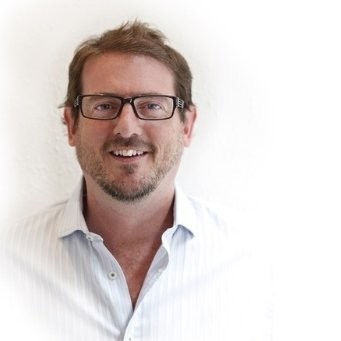
Jon Tanner
Founder and CEO
Investor and entrepreneur. Inspired by innovators and individuals who challenge what’s accepted in pursuit of what could be. Constantly curious, lover of great stories, and great storytellers.

